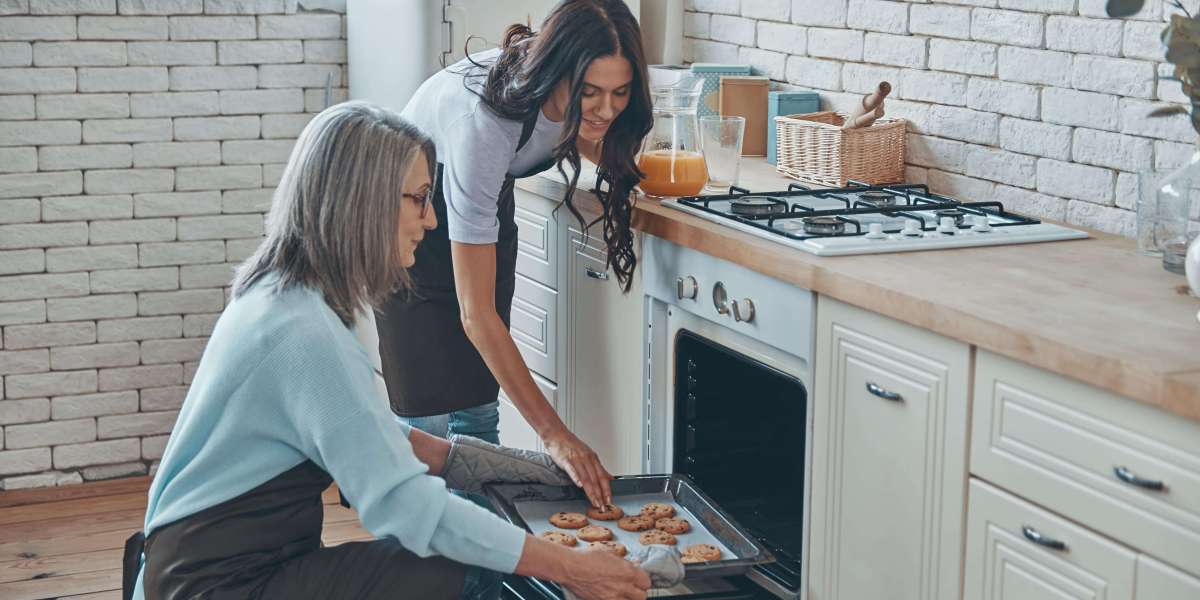
The Integrated Cooker: A Comprehensive Guide to Modern Cooking Solutions
The advancement of kitchen appliances has actually transformed food preparation and cooking techniques, making meal preparation more efficient and satisfying. Among these innovations, the integrated cooker stands apart as a flexible and space-saving addition to contemporary kitchens. This article dives into the different aspects of integrated cookers, consisting of types, advantages, functions, and a comparison with standard cooking methods.

What is an Integrated Cooker?
An integrated cooker is a compact cooking home appliance that combines numerous cooking functions into one system. Typically built into kitchen cabinetry, these cookers are designed to conserve space while improving kitchen aesthetics. They usually integrate a variety of functionalities, such as baking, barbecuing, steaming, and even pressure cooking.
Secret Features of Integrated Cookers
- Multi-Functionality: Integrated cookers can perform numerous cooking tasks, eliminating the requirement for numerous appliances.
- Space-Saving Design: These cookers fit perfectly into kitchen systems, making them perfect for modern homes with minimal space.
- Advanced Technology: Many integrated cookers come geared up with clever technology, such as programmable settings, touch-screen controls, and connectivity choices.
- Energy Efficiency: Built with contemporary materials and style, they typically take in less energy compared to traditional cooking techniques.
Types of Integrated Cookers
The market provides different types of integrated cookers, each with its special set of functions and functionalities. Here are the most common types:
| Type | Description | Example Use |
|---|---|---|
| Built-in Ovens | Ovens that are fitted into wall units or cabinets | Baking bread, roasting meats |
| Induction Hobs | Cooktops that use electro-magnetic energy to heat pots and pans | Rapidly boiling water, sautéing |
| Steam Ovens | Appliances that cook food utilizing steam for much healthier results | Steaming veggies, fish |
| Microwave Ovens | Integrated microwaves for quick heating and cooking | Reheating leftovers, making popcorn |
| Mix Ovens | A mix of conventional and steam cooking technologies | Baking while guaranteeing wetness retention |
Benefits of Using Integrated Cookers
Integrated cookers supply a host of benefits over conventional cooking tools. Below are some of the crucial benefits:
- Space Efficiency: Ideal for compact cooking areas, integrated cookers make use of vertical areas efficiently.
- Structured Cooking Process: With several functions offered, users can transition from one cooking method to another with very little effort.
- Boosted Aesthetics: Many integrated cookers can be found in smooth styles that blend well with contemporary kitchen decor.
- Enhanced Cooking Control: Programmable features permit precise cooking, making sure much better meal outcomes.
Integrated Cookers vs. Traditional Cooking Appliances
When considering meal preparation alternatives, it is important to weigh the benefits of integrated cookers against standard cooking appliances. Below is a comparison chart:
| Feature | Integrated Cooker | Conventional Appliances |
|---|---|---|
| Space Efficiency | High | Lower |
| Multi-Functionality | Yes | No (needs several appliances) |
| Energy Consumption | Often lower | Can be higher |
| Cooking Speed | Faster (particularly with induction) | Varies |
| Design | Modern and sleek | Differs widely |
The integrated Intergrated cooker is a forward-thinking device that satisfies the demands these days's hectic way of life. Its multiplicity of functions, space-saving style, and streamlined aesthetics make it a rewarding investment for any modern-day kitchen.
For those seeking to conserve time, area, and effort in meal preparation, integrated cookers use an exceptional option that enhances the cooking experience while delivering delicious, well-prepared meals.
Regularly Asked Questions (FAQs)
1. What is the average rate of an integrated cooker?
The price of integrated cookers can differ extensively, usually varying from ₤ 500 to ₤ 3,000 depending upon functions, brand name, and size.
2. Just how much maintenance do integrated cookers require?
Upkeep often consists of routine cleaning of surface areas and looking for any software application updates if they include smart technology. It's suggested to follow the maker's standards.
3. Can I change my existing oven with an integrated cooker?
Yes, integrated cookers can typically replace standard ovens, however it is necessary to seek advice from with an expert to make sure compatibility with your kitchen design.
4. Are integrated cookers challenging to install?
Installation can be uncomplicated for those with DIY experience. Nevertheless, employing a certified specialist is advised to ensure correct setup.
5. Who benefits most from using an integrated cooker?
Households, time-pressed people, and those residing in compact homes particularly benefit from the multi-functionality and space-saving design of integrated cookers.
In this age of benefit and effectiveness, integrated cookers are redefining how we approach cooking. Whether you are a knowledgeable chef or a cooking amateur, incorporating this effective home appliance into your kitchen can substantially enhance your culinary experience.








